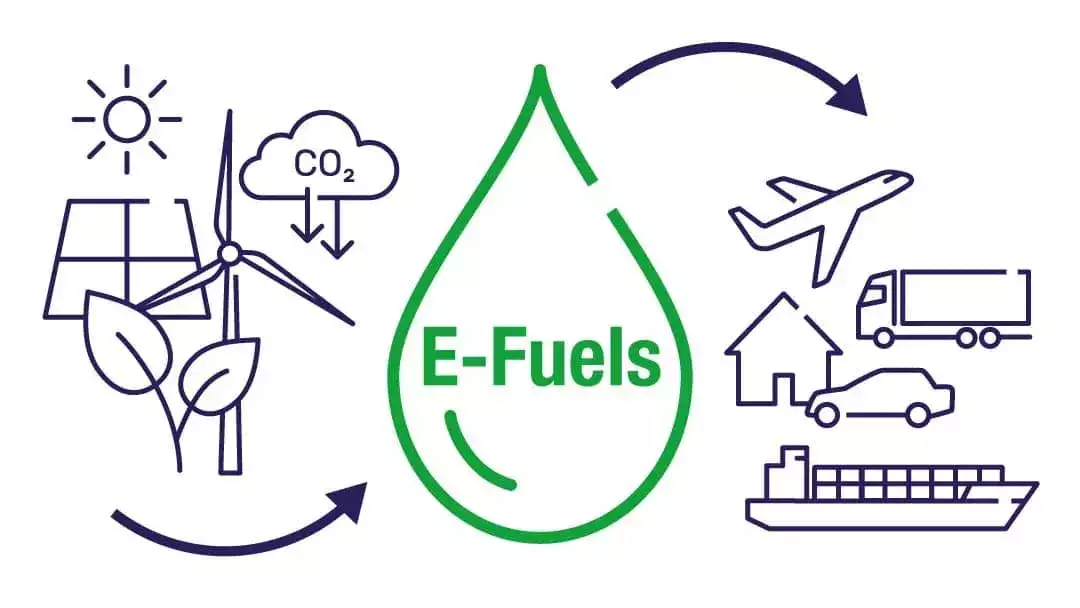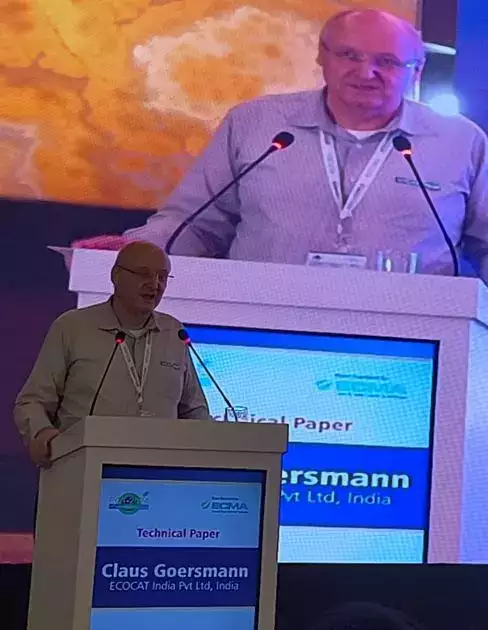 India's heavy reliance on coal-based electricity presents challenges for immediate adoption of e-fuels.
India's heavy reliance on coal-based electricity presents challenges for immediate adoption of e-fuels.Claus Goersmann, Chief Technology Officer, Ecocat India, presented a compelling case for adopting e-fuels as a transitional and long-term solution to achieve clean air and reduce greenhouse gas emissions. Speaking at ECMA's ECT 2024, Goersmann shared insights from his research paper, emphasising the role of e-fuels in India’s unique energy ecosystem.
The case for e-fuels in India
E-fuels, such as e-gasoline, e-diesel, and e-methane, are synthetic fuels produced using renewable energy sources like wind and solar. According to Goersmann, their primary advantage lies in their compatibility with existing internal combustion engine (ICE) infrastructure. “E-fuels can be used as drop-in fuels, allowing decarbonisation without requiring significant changes in consumer behaviour or vehicle technology,” he said.
Highlighting the diversity of e-fuels, Goersmann categorised them into carbon-based options, which utilise sources like biogas, and non-carbon-based fuels, such as hydrogen and ammonia. While carbon-based e-fuels could provide an effective transition from fossil fuels, non-carbon options hold promise for the long term.
India’s unique position and challenges
India's heavy reliance on coal-based electricity presents challenges for immediate adoption of e-fuels. “The CO2 content of electricity in India is currently high, which makes producing e-fuels less efficient compared to regions with cleaner grids like the EU,” he remarked. However, he identified areas with abundant solar and wind resources as potential hubs for low-carbon e-fuel production in the future.
Using the example of Germany's now-defunct Audi e-gas project, Goersmann illustrated how combining renewable energy with biogas facilities could produce green methane at scale. While this approach faced limitations in Europe, he argued it could be more viable in India due to the country’s decentralised energy grid and growing demand for innovative energy solutions.
 Claus Goersmann, Chief Technology Officer, Ecocat India
Claus Goersmann, Chief Technology Officer, Ecocat IndiaPraising India’s policymakers for adopting a technology-agnostic approach, Goersmann stated, “Unlike Europe’s push for an outright ban on ICE vehicles by 2035, India has wisely chosen a diverse path to decarbonise its transport sector. This inclusive strategy is both practical and effective in reducing GHG emissions.”
He also emphasised the importance of optimising current emission control technologies to meet stringent future standards, such as those comparable to Euro 7 norms, without solely relying on electric and hydrogen-powered vehicles.
The road ahead
While acknowledging current limitations, Goersmann expressed optimism about the future of e-fuels in India. “E-fuels may not yet be fully viable due to the high CO2 intensity of the electricity grid, but they hold significant potential as part of India’s long-term energy strategy,” he concluded.
With its abundant renewable energy resources and a pragmatic policy framework, India could emerge as a global leader in the development and deployment of e-fuels, paving the way for a cleaner, greener future.

